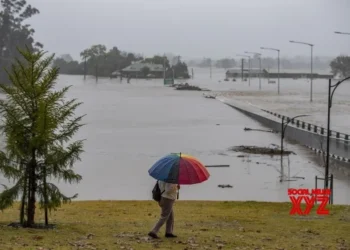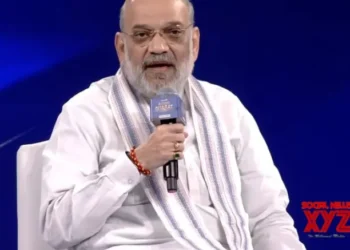Eric Garcetti may soon, and finally, be on his way to New Delhi to take office as the US Ambassador to India, nearly two years after his nomination was announced by the White House.
The Senate Foreign Relations Committee voted 13-8 to approve his nomination on Wednesday, setting up a vote by the full 100-member Senate, which may not prove as difficult as it has been for him to get this far.
Two Republican senators voted with all 11 Democrats on the committee to clear Garcetti, who may get the full Senate’s approval with similar bipartisanship.
President Joe Biden nominated Garcetti, a former mayor of Los Angeles and once – rising star in the Democratic party, as ambassador to India in 2021. He had his confirmation hearing as well, but he never got a vote of the senate committee as objections rose to his handling of a case of sexual harassment by his right-hand man in Los Angeles.
The nomination stalled and was deemed returned to the White House, which, however, did not send it back or name a replacement in 2022.
With the new Congress in place in January 2023, the White House re-sent the nomination.
But fresh trouble loomed. Republican senator Marco Rubio announced a hold on Garcetti’s nomination along with a bunch of others, including Rich Verma, who has been named to be a deputy secretary of state, and Geeta Rao Gupta as ambassador at large for global women’s issues. An individual senator’s hold usually means an up-and-down vote of the full Senate would be needed.
With Garcetti’s nomination stalled and the Biden administration refusing to name a nomination, observers of the bilateral relationship wondered if this was a manifestation of a deeper problem between India and US, because this was possibly the longest America has not had an ambassador in New Delhi.
This prolonged period of no-ambassador also coincided with extraordinary delays in issuance of USA visas in India, with the waiting period for first-time applicants for business and tourism visas reaching two years at its worst (it’s been cut down considerably now).
Relations between the two countries were in an overdrive with President Biden putting the Quad front and center of his Indo-Pacific strategy early in his administration, resulting in several virtual and in-person meetings bilaterally with Prime Minister Narendra Modi and multilaterally, with counterparts from Japan and Australia.
At his confirmation hearing, Garcetti had vowed to “double-down on our efforts to strengthen India’s capacity to secure its borders, defend its sovereignty, and deter aggression” – music to ears on Raisina Hill – he also plans to raise thorny issues such as the Indian purchase of the Russian S-400 air defence missile system, human rights and democratic values.
Comparisons are odious, but Garcetti’s political clout and proximity to the White House had put him ahead of most of his recent predecessors. Also, he is widely expected to run for White House, given his credentials: Hispanic descent, top Democratic operative, a top operative in a presidential campaign, Rhodes scholar at Oxford and alumnus of London School of Economics.
Fifty one-year-old Garcetti is close to the White House and was once considered a potential member of the Biden cabinet but the same allegations that came up during his confirmation hearing had come in his way.






















